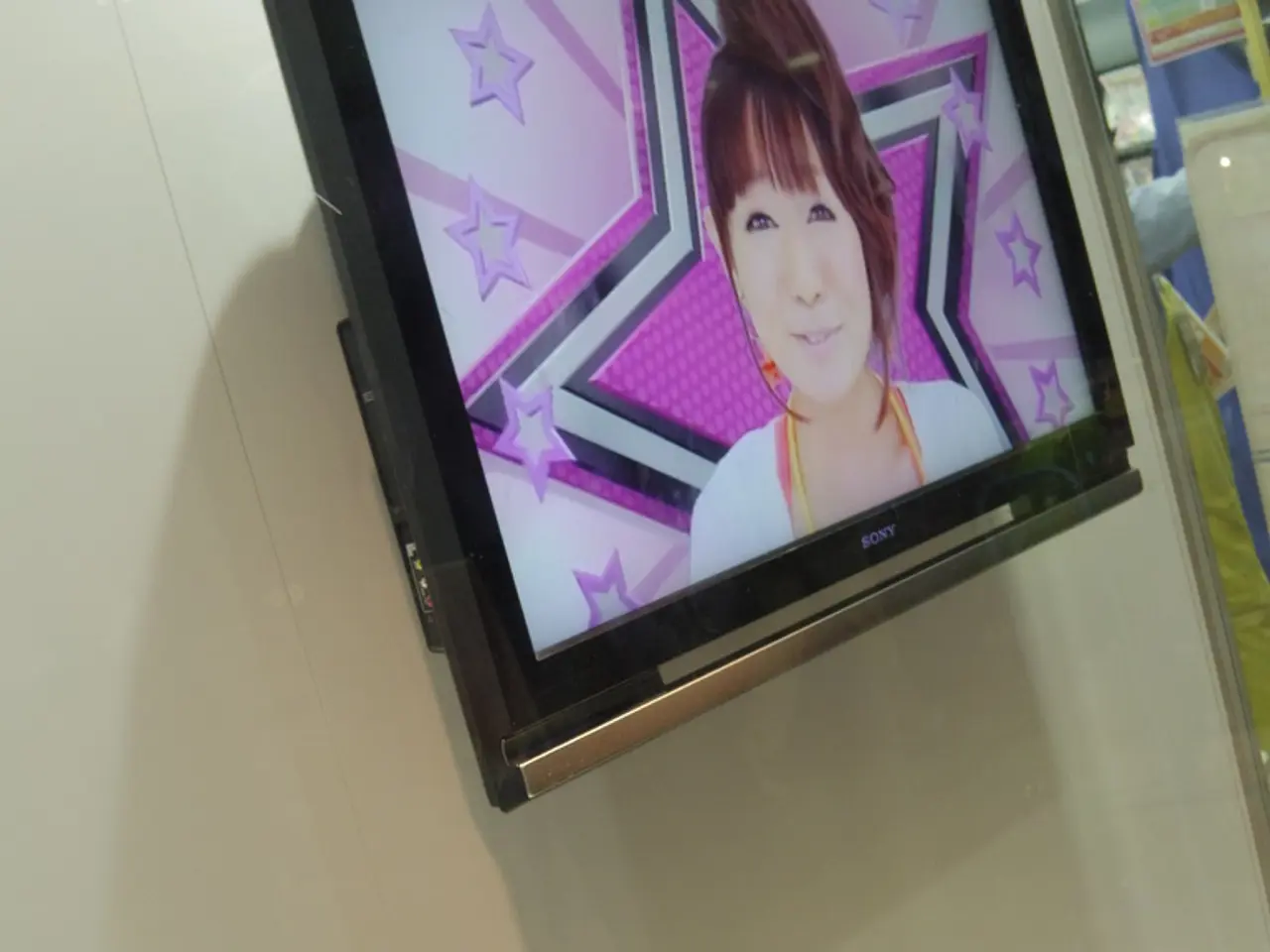Traditional television viewing is being surpassed by online streaming services
In the ever-evolving landscape of consumer electronics, Germany is experiencing a significant shift towards internet-based TV services. This transformation, prompted by the abolition of cable subscription fees in 2024, has resulted in a notable change in viewing habits and sales trends.
According to recent data, the proportion of Germans who occasionally watch classic TV decreased from 92% to 86% last year, while the number of those who prefer to stream online increased slightly from 86% to 87%. This shift is reflected in the sales figures, with a 8% decrease in TV sales, bringing the total to approximately 2.9 billion euros.
However, this decline in traditional TV sales has been counterbalanced by the growth in internet-based TV services. Companies like Vodafone and Deutsche Giganetz have seen improvements in their revenue, as more consumers shift away from traditional cable TV to IPTV and streaming services. Providers such as Zattoo, waipu.tv, and MagentaTV have benefited from this change, experiencing an increase in internet-based TV usage.
The market for consumer electronics in Germany remained stable at 7.8 billion euros, with sales of gaming consoles bucking the trend and increasing by 38% to nearly 1.1 billion euros. This surge in gaming console sales could be a sign of consumers spending more time at home and seeking new forms of entertainment.
The survey also suggests a fusion of offers between classic TV channels and on-demand services. Classic TV channels in Germany are increasingly offering media libraries, while on-demand services are integrating linear content. This fusion is evident in the viewing habits of Germans, with 28% using a mix of both on-demand and linear TV, and 40% preferring to watch content at a time that suits them best.
Olaf May, a board member at Bitkom, sees artificial intelligence as an opportunity for market growth in the consumer electronics sector. He expects the integration of AI in smart TVs to give the industry new impetus and help increase sales in the electronics sector.
Interestingly, the abolition of the chargeability of cable connections in rental apartment ancillary costs has led to an increase in the use of internet-based TV services in Germany. Linear TV, where programs run at fixed times, remains popular in Germany, with around 30% of respondents mainly watching linear TV.
However, the sales of audio devices decreased by 12% to approximately 830 million euros, indicating a potential shift in consumer preferences towards visual entertainment over audio-only devices.
This shift towards internet-based TV services and the integration of AI in smart TVs are expected to continue shaping the consumer electronics market in Germany in the coming years.
Read also:
- Understanding Hemorrhagic Gastroenteritis: Key Facts
- Trump's Policies: Tariffs, AI, Surveillance, and Possible Martial Law
- Expanded Community Health Involvement by CK Birla Hospitals, Jaipur, Maintained Through Consistent Outreach Programs Across Rajasthan
- Abdominal Fat Accumulation: Causes and Strategies for Reduction







